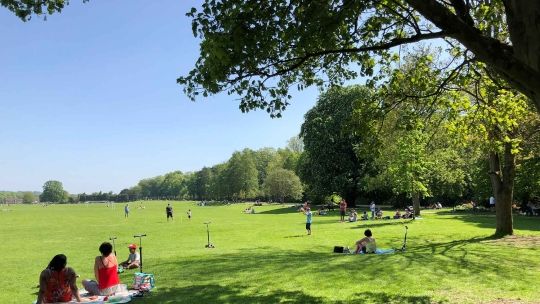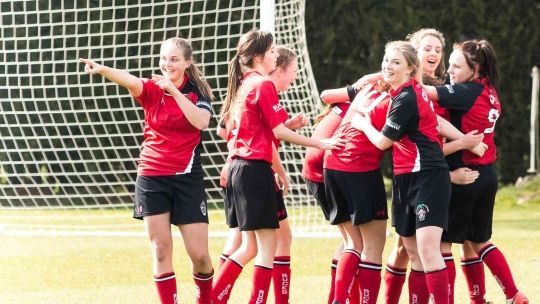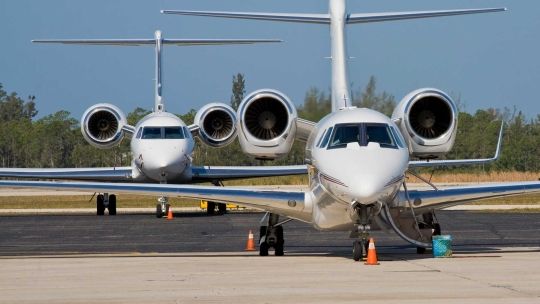
Research Impact
Research Impact
Buckinghamshire New University has an active applied research community covering a wide range of discipline areas. Activities are undertaken nationally, within European programmes and internationally. Our professional networks support generation of impact from our research activities. Some example Impact case studies from research undertaken at BNU are shown below.

Climate change mitigation strategy
Research conducted at BNU on the impact of effective natural resources management has resulted in international action to mitigate climate change. Our research demonstrated that decarbonisation approaches in the wood related sector combined with effective measure of biomass leads to positive mitigation impacts in climate change.

Gypsy, Roma and Traveller health
This case study pertains to a substantial body of work at both policy and practice level with a particular focus on the health and wellbeing of Gypsy, Traveller and Roma populations in the UK.

Engaging people with disabilities in sport
In 2016, BNU's Human Performance, Exercise and Wellbeing Centre was approached by Buckinghamshire County Council (Bucks CC) and the Bucks and Milton-Keynes County Sport Partnership (Leap With Us; now Active Partnership) to research the reasons why people with disabilities were not engaging with sport and physical activity.

Birth Satisfaction Scale revised
The BSS-R provides a reliable and practical tool to assess the birth experience and identify areas for improvement and optimisation, in addition to providing clinically-valuable insights into the impact of specific clinical interventions on birth experience.

Improving resilience in football academies
Psychological resilience represents an important phenomenon that explains the development of people who positively adapt to adverse events. Through our research we have demonstrated that the ability of teams, including athletes and coaches, to withstand stressors is a prerequisite for sporting excellence

The benefits of air policy reform in small island states
Socio-economic analyses in the small island states of the Caribbean have shown that air transport provides a critical lifeline for continued access to global markets, tourism and other forms of trade and economic activity. This case study has informed changes to the air transport policies of CARICOM and individual Caribbean states.
Global Challenges Research
The Global Challenges Research Fund (GCRF) is a £1.5 billion fund from the UK Government to support cutting-edge research that addresses the challenges faced by developing countries.
Research England distributes £58 million from the GCRF to English universities in receipt of quality-related (QR) funding. Each year, BNU receives funding in the region of £10k as part of our QR funding allocation. Expenditure of this funding needs to be reported against activities that align with our 3-year GCRF strategy (approved in 2018), to support activities relating to DAC-listed countries and which meet the GCRF funding criteria. DAC-listed countries are low and middle income countries which are eligible to receive official development assistance (ODA).
GCRF aligns with three main challenge areas:
- Equitable Access to Sustainable Development
- Sustainable Economies and Societies
- Human Rights, Good Governance and Social Justice
Supported by Research England funding, some examples of BNU engagement in Global Challenges research are given below.
Dr Dorin Festeu
The project contributed to the enhancement of the professional development of staff members of the Kharkov National University of Civil Engineering and Architecture (KNUCEA) in the Ukraine. Members of staff involved in the project have significantly developed their abilities to promote innovation, entrepreneurship and commercialisation of research. The original aims of KNUCEA were to support Master and PhD students to conduct research that solves real life problems and that has commercialisation potential. To date, work has been completed with 185 Master and 72 PhD students.
The Ukrainian members of staff have acquired enhanced abilities to support Ukrainian students in thinking of research as responding to society’s real needs. They now have a better understanding of the European educational system and the expectations and the utilisation of modern methods, including e-learning pedagogy. Their use of English and ability to understand the British work culture has been significantly enhanced as a result of the period spent abroad. In KNUCEA the impact is easy to assess on the four projects that have a clear commercialisation potential. These are: “Workshop for metal rapid design and manufacturing”; “Chemical testing for contamination levels of disused factory grounds”, “Village houses that are zero carbon emission using agricultural waste”; “Urban space that uses local plants and trees for temperature control”.
Professor Florin Ioras
Ghana is greatly endowed with resources and has the competitive advantage needed to develop a thriving commercial tropical timber sector. With a very strong export potential in certified products, the country also has excellent climate, rich soil, good port facilities, continuous improvement in infrastructure base and a strategic location near profitable global markets. However, it faces major obstacles due to its limited capacity to conform to international standards. The objective of the project was to enhance the export capacity of Ghana, by creating conditions for strengthening market access capacities in selected European timber markets, establishing a credible market analysis infrastructure and fostering integration into the multilateral trading system while at the same time strengthening local consumer protection.
The expected outcome of the project includes the following:
- To increase the capacity of Ghana Standards Authority (GSA) in standards development; to disseminate, promote Ghanaian enterprises on priority public and voluntary standards with high market demand and use the standard related activities to enhance and further institutionalise consumer protection.
- Establish a traceability system at the Ghana Export Promotion Authority (GEPA) for export products to promote the application of traceability schemes by producers and exporters.
- Support the Ghana Certification Body and prepare for accreditation for the certification of Quality Management Systems.
- Strengthen chain of custody verification to provide reliable and internationally accepted tests for key export markets.
- Developing capacity and competencies to inspect exports.
- Development of the National Quality Infrastructure.
Selected export products such as wood are to be supported after a value chain assessment to identify areas of intervention. An improvement in the quality of these key export value chains will help match the needs, expectations and requirements of purchasers and consumers as well as those of the regulatory authorities in the local and export markets.
A quarterly publication of Market Report on Tropical Timber identifies trends in the Ghanaian trade of tropical timber on the EU market, and explores how a European commitment to 100% verified sustainable tropical timber, can contribute to deforestation-free supply chains and help meet climate change mitigation targets in Ghana and West Africa.
Dr Lyndon Buck
BNU is a partner in a Horizon 2020 project, WaterSpoutt, which aims to develop new reactors based on Solar Water Disinfection (SODIS) for harvested rainwater in Africa. These will provide up to 125 litres per day of treated harvested rainwater of suitable microbiological and chemical standards. SODIS is a household water treatment that uses freely available solar energy to inactivate pathogens in water stored in transparent containers placed in direct sunlight. SODIS is used by approximately 5 million people in developing countries on a daily basis. Bucks provides product design capacity with the aim to increase the user uptake of SODIS by designing, piloting and bringing to market novel solar-based technologies (Solar jerrycans). Rather than the 2-litre treated volumes usually provided by the standard batch SODIS process, this technology provides larger volumes (≥20l) of treated water per day in each household. The technology was designed in consultation with end users in Africa and is being piloted in Uganda, South Africa, Ethiopia and Malawi.
This technology has a potential estimated market of more 102 million potential end-users in Africa in addition to 50 million elsewhere (Asia, Europe, Latin America). Almost every household without access to safe water in low-income countries has a jerrycan. If this project is successful it has the potential to replace all of these with polypropylene Transparent Jerrycans which will provide safe drinking water for the most vulnerable communities across the globe.
BNU is also partner in a second related project, PANIWATER, which includes funding for the manufacture and evaluation of polypropylene Transparent Jerrycans in India.
Further details can be found on the Research Projects pages.
Dr Dorin Festeu
The project aimed to stimulate the creation of and growth of green micro entrepreneurship in the Ukraine by strengthening local business support through provision of comprehensive information services, knowledge transfer and skills development.
The specific project objectives were to:
- streamline access to business support information for local SMEs and micro enterprises through local information points;
- to promote cluster initiatives in designated areas;
- support small business-oriented advocacy and promotion of green entrepreneurship.
The project is expected to improve the local capacity to promote and sustain green entrepreneurship and SMEs development, including: provision of best national and international expertise to access local needs and gaps in green SMEs support services; set up and support of the information and consultancy points (centres) providing comprehensive advice and assistance to local entrepreneurs; knowledge transfer on existing business opportunities; development of cluster initiatives; strengthening economic ties with the UK etc.
To date, the following have been accomplished
- Local needs, gaps and barriers for green SMEs and entrepreneurship development were studied and analysed;
- The concept of Business Information Points’ organization, based on the local capacities and needs, was developed in partnership with the experts from the UK DFID;
- UK experience in proving support to green SMEs’ start-up and development, as well as information and consultancy services has been transferred through seminars and a study tour organised during October 2017-March 2018;
- 25 SMEs and 30 local specialists from the partner municipalities (Kharkov region) were trained by the UK and Ukrainian experts in business expansion issues, clusters development (in the wood processing industry, in particular) and foreign trade through targeted seminars, study visits and B2B meetings.
- Launched the advocacy, communication and social mobilization campaign in targeted municipalities and beyond;
- Municipal specialists and personnel of the Business Information Points trained in communications skills and working with social networks;
- Business information point in Kharkov’ (named Centre for Green Entrepreneurship Development) and Business information point are established
- Created a website of the Centre for Entrepreneurship Development in Kharkov.